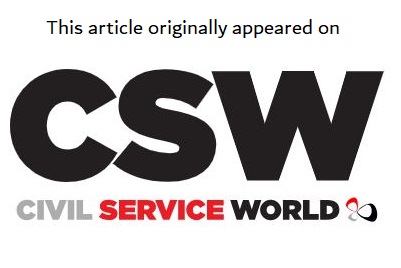Cabinet Office has been urged by parliament’s Public Administration and Constitutional Affairs Committee to expedite work on its ongoing review of the UK Statistics Authority, to enable effective future planning
The Cabinet Office has been chastised for dragging its feet on a review of the UK Statistics Authority, with MPs warning the stats authority will find it difficult to “plan effectively” as a result.
Public Administration and Constitutional Affairs Committee chair William Wragg said repeated delays to the review of UKSA – which oversees the work of the Office for National Statistics – has left the stats watchdog in an “unsatisfactory and unreasonable situation” which was “unacceptable” to the committee.
Wragg recently wrote to Lucy Neville-Rolfe, a junior minister in the department, asking for an update on the review, which was promised in February 2022, and which then-Cabinet Office minister Steve Barclay said at the time would “focus on effective governance, future-proofed capability and public confidence in the use of statistics”.
He noted that Barclay had said the review would coincide with the appointment of UKSA’s next chair – but it did not happen when Sir Robert Chote was appointed in June 2022. A few months after the appointment, Baroness Neville-Rolfe told the committee that the review would begin in early 2023 and would be published in June that year. However, the review did not in fact begin until June 2023.
“While we support the Cabinet Office in its ambition to periodically review arms-length bodies across government, I am sure you will agree that dragging the process out over a number of years is neither efficient nor effective,” Wragg wrote, urging the minister to confirm the status of the review and when its findings would be published.
He also said the MPs had invited Professor Denise Lievesley, who is leading the review, to give evidence this week on her findings as part of the committee’s ongoing inquiry into transforming the UK’s evidence base.
Related content
- Experts voice fears over loss of government data experts
- ONS chief data officer: ‘We want a much more connected relationship with citizens around how their data is used’
- NHS to hold ‘national conversations’ with public over patient data use
“This invitation was extended on the understanding that the review would conclude with the timeline committed to publicly last summer. As such, we expect that the final report will be made public in good time ahead of the session,” he said.
But in her response, Neville-Rolfe indicated that not only had the review not been completed, it may not be published for some time as she wanted to publish it alongside the government’s response.
In a letter on 11 January, Neville-Rolfe said that when Professor Denise Lievesley had been appointed as lead reviewer last June, the review was expected to take around six months.
“We are slightly outside of this timeframe, which has been extended to account for the scope of the review, the complexity of its subject matter and the range of stakeholders who have contributed to the findings,” she said. “Given the importance of this review, and the value of its findings to the government, parliament and the wider user community, I know you will agree that rushing the report to publication is not in anyone’s interest.”
She said she expected to receive the final report by the end of this month, adding: “Once I have received it, I will be able to consider the government’s response and I remain keen that together with the report, this is published in a timely way.”
“You may feel in the circumstances that it makes sense for your committee to reschedule Professor Lievesley’s appearance for later in the year,” she added.
But Wragg said the committee was “deeply concerned by these delays and by the process relating to the review”.
In a letter dated 23 January but published yesterday, he said the original timeline had “allowed good time” for the UKSA to consider Lievesley’s recommendations and finalise its plans for 2024-25.
“It is difficult to see how the UKSA can be expected to plan effectively at this stage, with no information available from government on its changing expectations,” Wragg wrote. “This is an unsatisfactory and unreasonable situation to place the organisation in, and any further delays are untenable from an organisational planning point of view, and unacceptable to this committee.”
He asked that the review be published as soon as it is completed, and for Neville-Rolfe and Lievesley to appear at a PACAC hearing in March.





